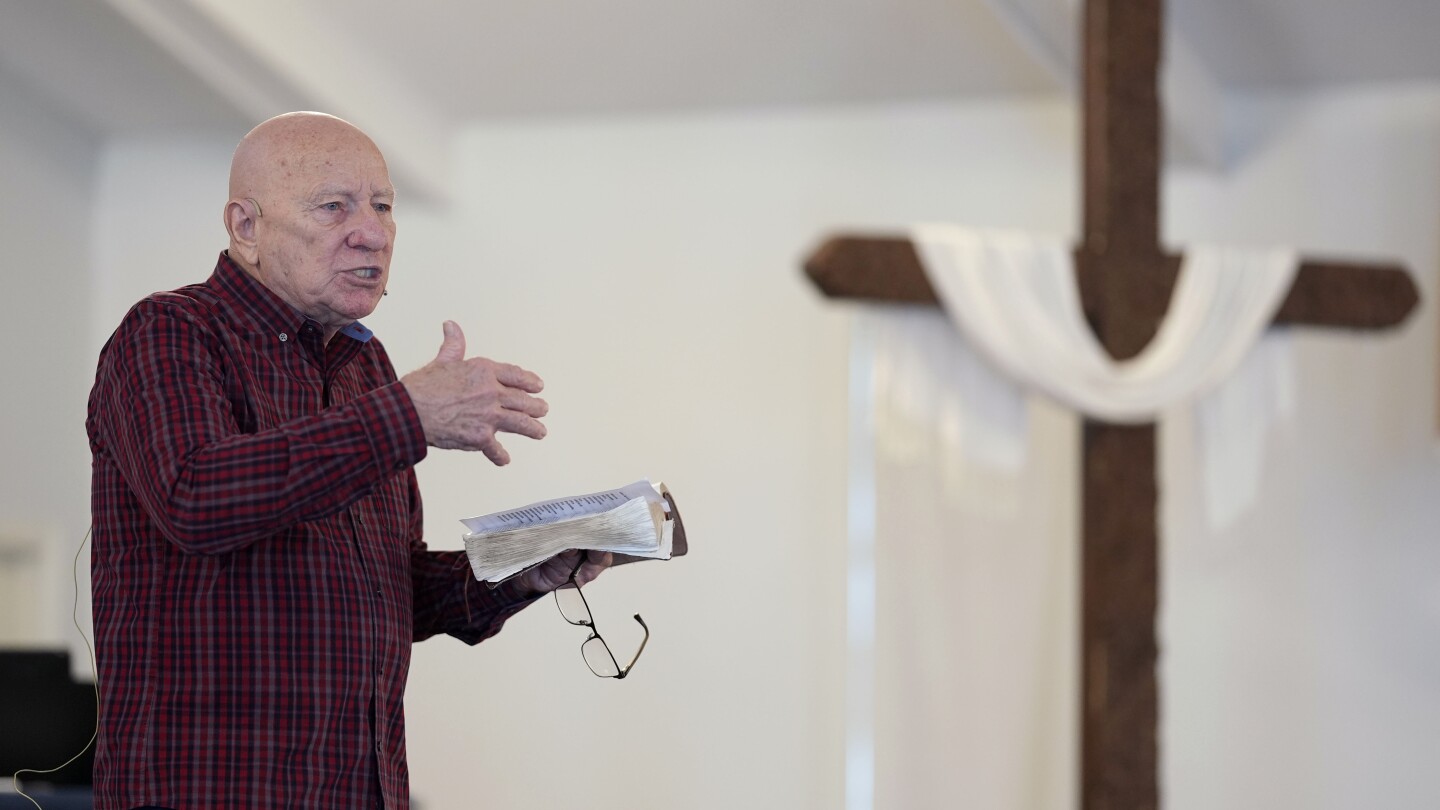“We thank you for the upcoming election, Lord — or caucus, as we call it in Iowa,” said Hundley, speaking from the sanctuary of his evangelical Christian church in his slight Texas drawl as his parishioners bowed their heads.
“It doesn’t matter what our opinion is,” he went on. “It’s really what’s your opinion that matters. But you’ve given us the privilege of being able to exercise a beautiful gift. The gift of vote. We thank you for that.”
While Hundley stops short of suggesting to his parishioners which candidate divine guidance should lead them to support, he is among more than 300 pastors and other faith leaders who’ve been described as supporters by former President Donald Trump’s campaign. It’s a message that some members of Hundley’s First Church of God have taken to heart, saying their faith informs their intention to caucus for Trump.
Ron Betts, a 72-year-old Republican who said he plans to caucus for “Trump all the way,” said he felt the former president “exemplified what Jesus would do.”



American Evangelicalism is a tulpamancy cult. I was raised Evangelical, sent to a private Evangelical school, and made to attend several Evangelical churches until adulthood. In all of these communities, it was universally believed that God directly speaks to each person through a special voice in their head. I was very strongly pressured to find, listen to, and obey this voice, and made to feel like I was not a “true believer” for being unable to channel it into glossolalia.
This is a huge point that should be talked about more. Tulpamancy isn’t pseudoscience, it’s very real and religion, especially Christianity, uses it to great effect. The process of finding and cultivating the “voice of God” is the exact process used to create an intentional tulpa of any number of various other types, there are entire internet communities about it. A little bit of research with this context in mind is extremely eye opening.